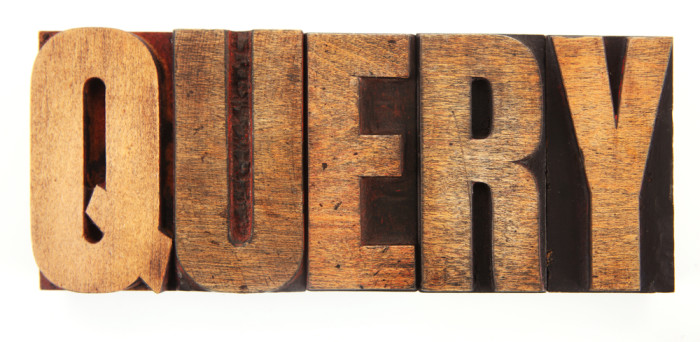A couple weeks ago, we published a bit on how to writer a killer book proposal for all of our non-fiction writers out there. This week, we’re focusing on the fiction counterpart—the query letter.
A query letter is what authors send out to literary agents in order to try and get their book picked up. This is the first peek of your book baby that anyone will see; it’s effectively your marketing pitch—not only of your book, but of yourself. Even though you’ll have completed your manuscript already, you won’t send it out unless it’s explicitly requested, so you simply can’t rely on your amazing writing here.
The query is an outline of your book and of yourself, but you want it to be as short as possible while keeping it compelling. It should by no means be more than a page; aim for half a page. If you’re afraid it might be too cluttered, have a friend (preferably a writer friend) take a look and let you know if she ever gets bored or overwhelmed.
If you’re in doubt, just stick to the elements of a successful query that we’ve listed out for you.
Introduction:
The most important part of your introduction is its personalization. You want an agent to know that you chose him or her for a specific reason. Was it because of his killer online bio? Was it because she had represented books similar to yours? Did someone give you a recommendation? This is important, because it shows you did your homework and are dedicated to finding a good fit.
This is also where you want to introduce your book. Do this simply: “It’s my pleasure to introduce my mystery novel, Who Dun It?” You’ll get more in depth in the next few paragraphs.
IF you have VERY SIGNIFICANT accolades for this manuscript, put a quick blurb about it here. (Example of when to do this.) This is by no means necessary, so unless there’s something that fits perfectly, stay away from it.
Book Info/Content:
Start of strong with the bio of your book: a sentence-long pitch of the plot: “Who Dun It? is the story of Harold Hammer, a middle-aged recluse who is forced to face the town he hates, along with the demons of the past it holds, when a murdered woman is found on his front porch.”
After this, start a new paragraph and dive into the content. Think back cover copy: Who is your main character? What does your character want? What stands in the way? You want this to be quick; two short paragraphs at most, but it has to convey the most compelling aspects of the story.
For my fake story, I want people to know that Harold is a recluse because he was accused of murdering his family ten years ago, and that the county sheriff had been engaged to his now-dead sister, and that the dead woman had a coded message to Harold crumpled in her hand. I’ll have to get all of that across, as well as a good sense of who Harold is and why he’s a character we care about following.
After this, give the book stats: genre, target audience, word count, etc. There are some agents who would like to see a sentence or two covering the marketability of a book and some who wish writers wouldn’t include it. If you feel that information is relevant, concisely put it in there, but if you think that you’ll just be cluttering your query up, leave it out. With straightforward genre fiction, the marketability is fairly obvious.
This is also the place to make any relevant comparisons to other titles. Maybe Who Dun It? would appeal to fans of Latest Psychological Mystery Thriller by Well-Known Author. If this is the case—if other people can see the comparison, as well—that information is relevant. But don’t oversell here. Who Dun It? is not a Stephen King novel, and saying that it is will only rub an agent the wrong way.
Sign-off:
This is where you want to get into your credentials. This is generally the worst part for writers, who notoriously hate bragging about themselves, but don’t worry—the best advice here is to keep this information short and factual. Include your degrees only if they’re relevant. (A Ph.D. in psychology is relevant for a psychological thriller; a bachelor’s in engineering is not.)
Include previously published work here, too. If you’re previously unpublished, don’t worry (this goes for whether or not you’ve had relevant schooling, as well). If you’ve proven why the agent is a good fit and enticed him with the essence of your killer story, these things won’t be turn offs. Remember, everyone started somewhere.
Lastly, thank the agent for his or her time and consideration. This shows that you’re respectful and cordial, and for someone who’s deciding whether or not to work with you, these factors are important. When it comes to your actual sign off, be professional—this is not the time or place for “With love.”
Now that you’ve gotten a general layout of a query letter, take a look at actual examples of successful queries for different genres. It can really help to see how successful authors have worded their queries.
Good luck querying!

